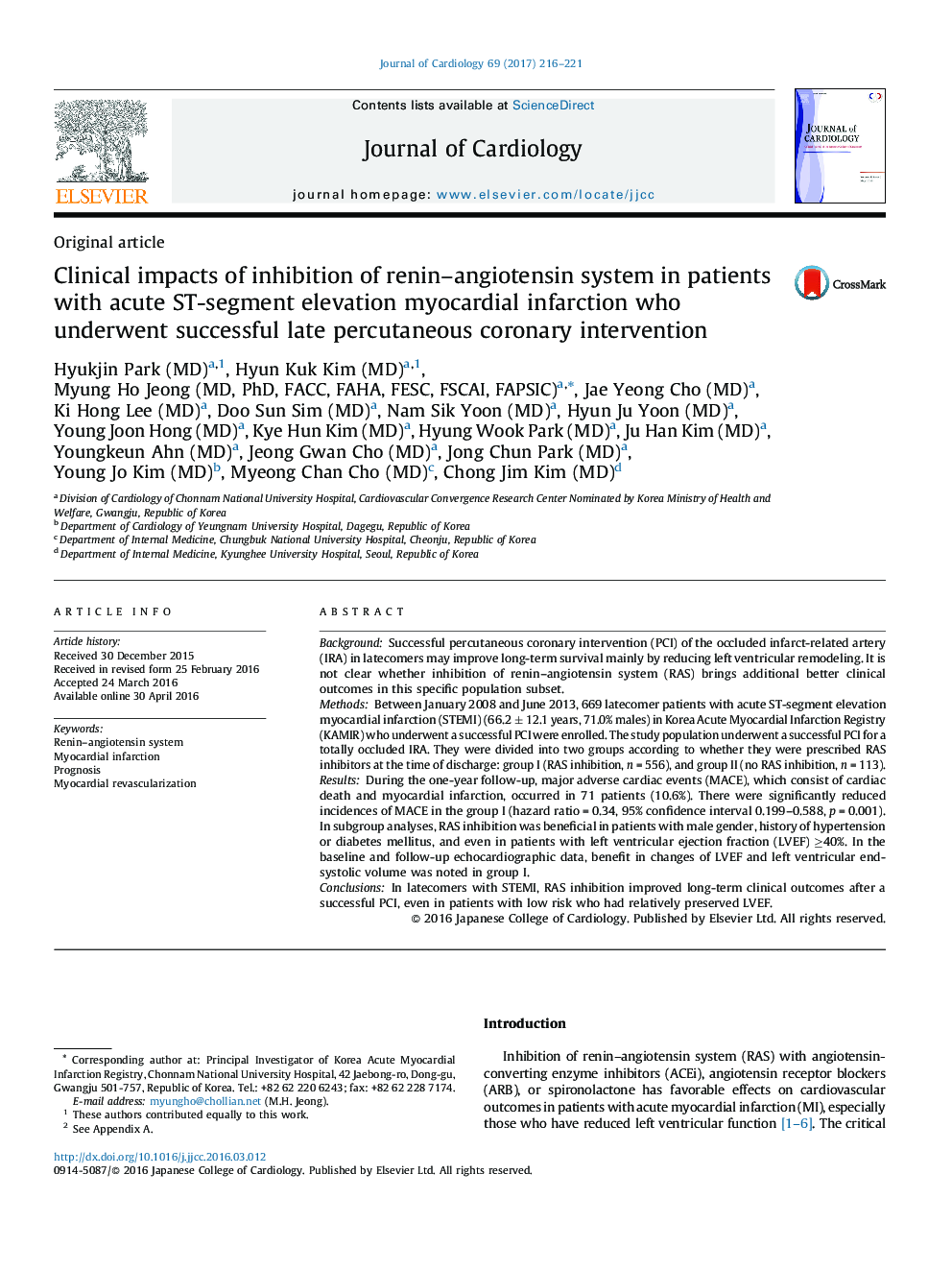| Article ID | Journal | Published Year | Pages | File Type |
|---|---|---|---|---|
| 5614743 | Journal of Cardiology | 2017 | 6 Pages |
BackgroundSuccessful percutaneous coronary intervention (PCI) of the occluded infarct-related artery (IRA) in latecomers may improve long-term survival mainly by reducing left ventricular remodeling. It is not clear whether inhibition of renin-angiotensin system (RAS) brings additional better clinical outcomes in this specific population subset.MethodsBetween January 2008 and June 2013, 669 latecomer patients with acute ST-segment elevation myocardial infarction (STEMI) (66.2 ± 12.1 years, 71.0% males) in Korea Acute Myocardial Infarction Registry (KAMIR) who underwent a successful PCI were enrolled. The study population underwent a successful PCI for a totally occluded IRA. They were divided into two groups according to whether they were prescribed RAS inhibitors at the time of discharge: group I (RAS inhibition, n = 556), and group II (no RAS inhibition, n = 113).ResultsDuring the one-year follow-up, major adverse cardiac events (MACE), which consist of cardiac death and myocardial infarction, occurred in 71 patients (10.6%). There were significantly reduced incidences of MACE in the group I (hazard ratio = 0.34, 95% confidence interval 0.199-0.588, p = 0.001). In subgroup analyses, RAS inhibition was beneficial in patients with male gender, history of hypertension or diabetes mellitus, and even in patients with left ventricular ejection fraction (LVEF) â¥40%. In the baseline and follow-up echocardiographic data, benefit in changes of LVEF and left ventricular end-systolic volume was noted in group I.ConclusionsIn latecomers with STEMI, RAS inhibition improved long-term clinical outcomes after a successful PCI, even in patients with low risk who had relatively preserved LVEF.
